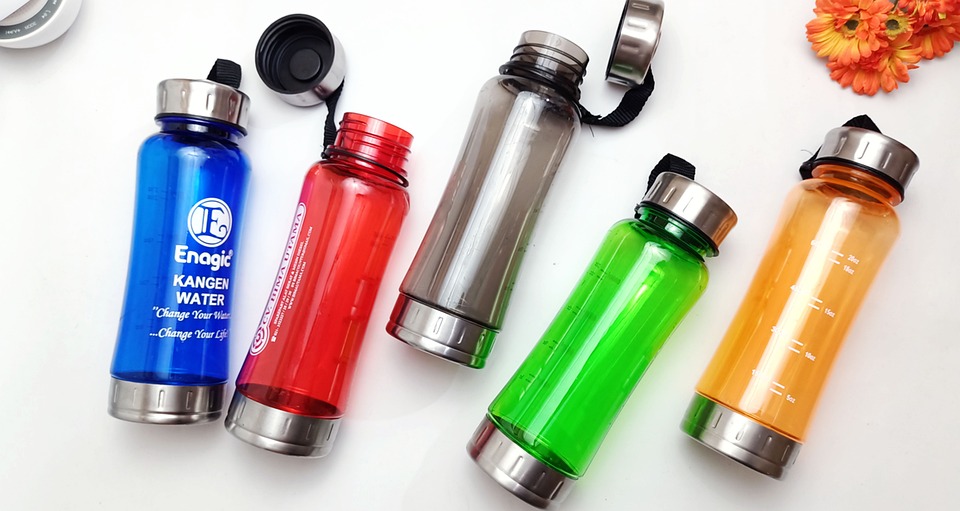Hydration Hacks: How to Stay Hydrated on the Go
1. Carry a Reusable Water Bottle
Investing in a reusable water bottle should be your first step towards staying hydrated on the go. Choose a bottle that is portable, durable, and preferably made of stainless steel or BPA-free plastic. Having a reusable bottle within reach at all times will serve as a constant reminder to drink water throughout the day.
2. Set Reminders and Track Your Intake
Incorporate technology into your hydration routine by using reminders on your smartphone or smartwatch. Set regular alarms to prompt you to drink water. Additionally, consider using a hydration tracking app or keeping a journal to record your daily water intake. By visualizing your progress, you can better gauge if you’re meeting your hydration goals.
3. Infuse Your Water
If you find plain water boring, add some flavor and boost its nutritional value by infusing it with various fruits, vegetables, or herbs. Citrus fruits like lemon, lime, and orange are popular options. Alternatively, try adding cucumber, mint leaves, berries, or slices of watermelon to your water. This will make it more refreshing and enjoyable to drink, encouraging you to stay hydrated on the go.
4. Opt for Hydrating Foods and Snacks
While drinking water is the primary way to stay hydrated, incorporating hydrating foods into your diet can also contribute to your overall water intake. Foods like watermelon, cucumber, celery, strawberries, and oranges have high water content and can help keep you hydrated. Keep some pre-cut fruits and vegetables or healthy snacks handy for whenever you’re on the go.
5. Take Advantage of Electrolyte Solutions
When you’re on the go and sweating a lot, simply drinking water might not be enough to replenish the electrolytes your body loses. Electrolyte solutions, such as sports drinks or specialized electrolyte mixes, can be beneficial in these situations. They help restore the balance of essential minerals like sodium, potassium, and magnesium, which aid in hydration.
6. Stay Mindful of Your Environment
Understand the impact of your environment on your hydration levels. Factors like high temperatures, dry climates, or altitude can increase the risk of dehydration. In such conditions, it is crucial to be particularly mindful of staying hydrated. Monitor your fluid intake more closely and adjust accordingly to ensure you’re meeting your body’s needs.
Frequently Asked Questions
Q: How much water should I drink daily?
A: The daily recommended water intake varies depending on several factors, such as your age, sex, weight, activity level, and overall health. A general guideline is to aim for about 8 glasses of water per day, but individual needs may differ. It’s always best to consult with a healthcare professional to determine the right amount for you.
Q: Are sugary drinks, like soda, a good hydration option?
A: While sugary drinks might quench your thirst temporarily, they are not an ideal option for hydration. These beverages often contain excessive amounts of sugar, additives, and empty calories. Water, infused water, or electrolyte solutions are much healthier choices to maintain proper hydration levels.
Q: Does coffee or tea count towards my daily water intake?
A: Contrary to popular belief, caffeinated beverages like coffee and tea do count towards your daily hydration. However, it’s important to note that excessive consumption of caffeine can have diuretic effects, potentially leading to increased fluid loss. Balance your caffeine intake with an adequate amount of water for optimal hydration.
Q: How can I tell if I’m hydrated enough?
A: Monitoring your urine color is a simple way to gauge your hydration levels. If your urine is light yellow or clear, it indicates that you are adequately hydrated. However, dark yellow or amber urine signals that you need to increase your water intake. Other signs of dehydration include feeling thirsty, dry mouth, fatigue, dizziness, or decreased urine output.
Q: Can I drink too much water?
A: While rare, excessive water intake can lead to a condition called hyponatremia or water poisoning. This occurs when the balance of electrolytes in your body is disrupted by overhydration. It’s important to listen to your body’s signals and consume water in moderation.
Conclusion
Maintaining proper hydration while on the go is crucial for your overall health and well-being. By implementing the hydration hacks discussed in this article, such as carrying a reusable water bottle, setting reminders, infusing your water, choosing hydrating foods, and being mindful of your environment, you can ensure that you stay properly hydrated throughout the day. Remember, staying hydrated is not only important for your physical health but also helps boost your energy levels and cognitive function. Prioritize hydration on the go and make it a habit for a healthier and more productive lifestyle!

